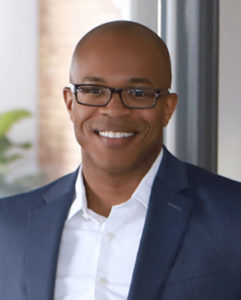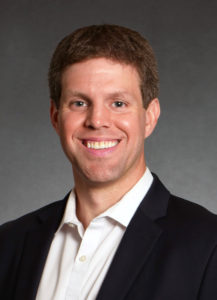
Rita E. Garwood,
Editor in chief ,
Monitor
The equipment finance industry has changed a lot in recent years. Once the bastion for leasing professionals who were going gray, efforts like the ELFA’s Emerging Talent Advisory Council have dramatically expanded the focus on younger leaders.
Like most in equipment finance, many of the industry’s rising stars didn’t plan to join this field. So, what attracted them to the industry and what makes them stay? Nate Gibbons, COO of Innovation Finance, says the “path of the unprepared” led him to First American Equipment Finance. “By the time I was ready to graduate from college, I had no internships under my belt (because I didn’t know any better), I knew nothing about business or finance, and I had a degree in Spanish but no clue what I was going to do with it. So, I started working at a CVS across the street from my apartment while continuing to apply to jobs in all types of industries — including one in the equipment leasing industry. The rest was history.”
Kara Miyasato, Stryker’s director of Marketing for Flex Financial, majored in philosophy and economics and was uncertain about her career path when she graduated. “I didn’t know what equipment finance was before I found myself working in financial services,” she says. “And specifically, for the role that I ended up taking, they were looking for someone who was very willing to learn and work hard, and they were willing to teach me the ropes. I’m very fortunate.”
Drew Spears, North America deployment manager at Caterpillar Financial Services, majored in investment banking and had his heart set on Wall Street until a summer internship led to a change of heart. “Halfway through my senior year, I had my offer to go to Wall Street and I had an offer to come back and join Cat Financial, where I had completed my internship, full time. It was really the people and the culture that drove my decision. I had an opportunity in my internship to speak with several customers, to interact with some of the dealers, to job shadow in a bunch of different areas, and I just really enjoyed the company and customer focus that was prevalent at Cat Financial.”
Carlie Yeandle, vice president at BMO Harris Equipment Finance, knew an accounting degree would open the door to various opportunities. After following a path in public accounting, a role at BMO caught her eye. “I saw it was a whole gamut of different things listed in the job description,” she says. “I thought, ‘Wow! This sounds like you’re learning a lot.’ I want to do this because I don’t like the thought of being so siloed.”

A desire to keep learning various aspects of the business is a common theme for the next generation of industry leaders, reflecting the movement toward flatter organizational structures that younger employees often prefer.
“One of the ways we keep emerging talent engaged is by including them in the leadership and strategic discussions of the company,” Gibbons says. “Employees don’t have to ‘put in their time’ to weigh in on important business decisions. This has lots of practical benefits in terms of professional development, but it also creates a sense of purpose and empowerment — both of which create a strong sense of connection and cause individuals to perform at a higher level. As they’re performing day-to-day tasks, they see the bigger picture and can more quickly identify creative solutions that benefit customers.”
Gibbons works for industry icon Bill Verhelle, who is passionate about inventive organizational design, but is this bigger picture view possible at larger organizations? Spears — who has worked his way around Cat Financial, performing nine different roles in the last 15 years, including customer service, sales, underwriting and project management — also stresses the importance of allowing young talent to learn the ins and outs of an organization, even at one of the largest companies in the industry.

“It’s not just that the employee gets a broad understanding of the company, but that they are put into a position to meet people and make relationships as well. In our Nashville headquarters, we have 1,000 people, so depending on where you are in the organization, it can be challenging to meet the right people and really get your name out there,” Spears says. “Participating in different groups and teams provides employees a formal way to network and get to know leaders and other employees in the company. That’s key both for their personal development and to ensure that we have the right talent to fit roles that may come open in the future.”
Miyasato echoes this point: “Stryker is great at developing employees, and it’s something I’ve really appreciated about the company. We run a talent-based offense and we think it’s really important to invest in our employees — it’s so important that talent offense is part of our overall company strategy. I’ve had a development plan every year I’ve worked at Stryker, and the bosses I’ve had have always been really open about what my career could look like and what I need to work on to make that happen.
BMO, a top-five bank in last year’s Monitor’s Bank 50, also is focused on retaining and promoting emerging talent, and Yeandle attributes its success to Jud Snyder, “He’s just a really great leader for our company, and he interacts with the entire team and not just his direct reports,” she says. “He definitely wants everybody to feel like we’re all in this together, we’re part of something bigger and that teamwork and comradery is really important. I think we couldn’t be under a better leader as far as that’s concerned. And that radiates throughout the bank.”
Working Across Generations
Today, younger employees are more valuable than ever before. Spears attributes this to their “innate inquisitive mentality” and a “desire to push the boundaries of historical processes” and challenge the status quo. Spears says upbringing is a major factor. “You’ll hear a lot of people talk about younger generations and the youth of today as having a dependency on technology, but I look at it a little bit differently. I don’t think it’s a dependency. I think it’s a real relationship that they have with technology and it’s because it’s what they grew up with.”

To illustrate this, Spears contrasts his own upbringing on a farm with three TV channels with his son’s ability to operate an iPad at two. “The world is going to look so much different for him because he’s growing up with this technology all around him. It will shape who he is.”
“Veterans and younger employees really aren’t all that different in terms of ambition, work ethic and other similar traits,” Gibbons says. “I think what makes them different is the same thing that makes us all different and that’s our perspective. The perspective of the workforce’s younger professionals is based on a mindset that has been uniquely influenced by rapid social and technological change. This can be good or bad, but I do think it enables younger employees to bring ideas to the table that might not be as apparent to others.”
Citing examples like Facebook, Spears says younger people are taking the lead, setting the pace and pushing the issue. “These companies are driven by young entrepreneurs who are brave in spirit,” Spears says. “They’re not jaded by some of the financial collapses of the past. They’re extremely outgoing and willing to take risks. They are blazing the trail that a lot of us are working to follow.”
Gibbons agrees, and says this spirit comes in handy when it comes to customers. “Younger employees have a distinct advantage in that many of them have not yet formulated a stance on how business has always been done,” Gibbons says. “Many younger employees are much closer to the rapidly changing

technological innovations that have, in turn, caused people to communicate very differently and to see the world through a different lens. I believe these attributes can be helpful in quickly identifying and responding to certain changes in customer preferences.”
“Getting a fresh set of eyes is definitely important,” Yeandle says. “I always challenge my team, especially when I have new hires and we train them. I say, ‘As you learn this new process, think of ways that we could be doing this better or question why are we doing it this way if you think there’s a simpler, easier approach to it.’ Because the current way isn’t always the best way, but you don’t know that until someone brings it to your attention.”
Miyasato concurs, adding that diversity is important: “If everyone on a project has the same tenure and experience, then we find that the group is going to be less creative than a team that includes new faces. People new to the industry typically aren’t caught up in how things have always been done and they can give really great feedback on new programs or existing processes.”
“I believe that everyone knows something that you don’t,” Gibbons says. “So whether I’m working with younger colleagues, older colleagues, different genders or different races, I personally try to be intentional about learning whatever I can.”
Learning from Each Other
Yeandle values the advice of older colleagues who have weathered the storm of previous downturns. “That knowledge isn’t something that can be passed on in training and it’s very valued, especially when you go through fluxes in the economy like we’re seeing right now. My career in equipment finance, we haven’t dealt with a lot of the challenges we’re facing today and a lot of the folks I’m working with remember dealing with this in 2008, 2009 and what we had to put in place to get through it. Leveraging that is what I look to the veterans for.”
The most important lesson Spears has learned from mentors is to “control what you can control.” He explains: “If you focus on doing your job to the best of your ability and performing and adding value to the enterprise in any way that you can, then good things will happen. If you start looking around you, wondering when you’re going to get your next opportunity or what’s going to happen tomorrow in the marketplace, or when is the COVID virus going to alleviate and allow us to get back to life as normal, then you could drive yourself crazy.”
Although Gibbons says Verhelle and the rest of the Innovation Finance team have taught him more lessons than he can count, two stand out: “1) Learning agility and strong communication significantly reduces the impact of mistakes and 2) our greatest weaknesses and greatest abilities may never be exposed if we are unwilling to take on challenges that seem daunting.”
Miyasato was promoted frequently earlier in her career, but when she hit the manager level, her ascent up the ladder slowed its pace. Feeling impatient, she turned to a few mentors who offered her the same advice: What’s the rush? “There’s no intrinsic value in moving up every couple of years,” she says. “You can still be challenged and learn new things within your role. They taught me that you can’t really keep up that pace of being promoted frequently and still be prepared for the challenges that you’ll face as the jobs get bigger.”
Lessons for the Next NextGen
Taking advice is natural when you’re an up and coming employee, but now that Gibbons, Miyasato, Spears and Yeandle have established themselves among the industry’s next group of leaders, what advice do they have for young people who are just beginning their careers?
Yeandle suggests getting involved in industry associations and talking to senior leaders. “Put yourself out there and don’t be afraid to step into a situation that you may be uncomfortable with. I am somebody who always hesitates before I do something. I might say yes and then I immediately say, ‘Why did I say yes to that?’ But it’s having that sort of attitude that gets you out there and gets you to meet new people even though it might be uncomfortable.”
“Relationships are really important, not just within your own company with peers and leaders, but also with people in the larger industry,” Miyasato says. “The equipment leasing and finance industry is really small, so you never know who you might work with, who might be your boss one day or who can help you out. I’m an introvert and networking does not come naturally to me. It’s something I have to be intentional about. I have to be intentional about cultivating mentorships, whether formal or informal, at all different levels. I think it’s important to have lots of people that you can lean on for support and advice.”
“Look at your career in five-year increments and set a goal for five years from now and then work with a leader that you’re comfortable with and say, ‘I’m here today. What do I need to do to get there in five years?’” Spears says. “Work that plan, reassess and set another five-year plan. Be patient and take advantage of the early part of your career and enjoy it because there’s never as much variety as there is in probably the first five to 10 years of your career.
“I would encourage younger individuals not to forsake the soft skills while pursuing the technical ones,” Gibbons says. “Many of us have been groomed to prioritize technical competence because it’s more objective and therefore easier to measure. However, in my experience, it’s often the soft skills that win out when candidates are being considered for leadership roles. Those who are technically proficient will quickly become people of influence if they are also adaptable, mindful of the needs of others and intentional about becoming effective communicators — particularly in an age where the form and mediums of communication are continually changing.” •